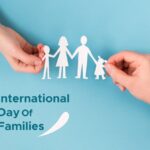International Day Against Homophobia, Transphobia, and Biphobia: A Call for Equality and Respect
Introduction
Every year on May 17th, the world observes International Day Against Homophobia, Transphobia, and Biphobia (IDAHOTB). This day is a powerful reminder of the importance of equality, respect, and acceptance for all individuals, regardless of their sexual orientation or gender identity. The observance calls for an end to the discrimination, violence, and stigma faced by lesbian, gay, bisexual, transgender, and queer (LGBTQ+) individuals around the globe. By shining a light on these issues, this day encourages societies to challenge harmful stereotypes, celebrate diversity, and promote equal rights for all.
The theme of IDAHOTB is not just about raising awareness for the LGBTQ+ community but also about creating safe spaces where everyone can express their identities without fear of discrimination. It’s a day to reflect on the progress that has been made in the fight for LGBTQ+ rights, while acknowledging the ongoing struggles that many still face.
What is International Day Against Homophobia, Transphobia, and Biphobia?
International Day Against Homophobia, Transphobia, and Biphobia is observed globally on May 17th to honor the World Health Organization’s (WHO) decision in 1990 to remove homosexuality from the International Classification of Diseases. This decision marked a significant turning point in the global fight for LGBTQ+ rights, as it symbolized the rejection of the pathologization of non-heterosexual identities. By setting aside a dedicated day each year, IDAHOTB serves as a reminder of the importance of advocating for the human rights of LGBTQ+ individuals and promoting social change.
The day aims to raise awareness about the challenges faced by the LGBTQ+ community, including homophobia, transphobia, and biphobia. These forms of discrimination can manifest in various ways, from harmful attitudes and prejudice to violence and exclusion. Despite progress in some parts of the world, many LGBTQ+ individuals continue to face barriers to equality and are subjected to discrimination in multiple aspects of their lives, including healthcare, education, employment, and family life.
History of International Day Against Homophobia, Transphobia, and Biphobia
The idea of a global observance to fight against homophobia and promote LGBTQ+ rights was first proposed by the French activist Louis-Georges Tin in 2004. It was his efforts that led to the creation of the International Day Against Homophobia, which was initially recognized as a day to focus specifically on homophobia. Over time, the scope of the observance expanded to include transphobia and biphobia, to ensure the visibility and rights of all LGBTQ+ individuals, regardless of their gender identity or sexual orientation.
The date, May 17th, was chosen to commemorate the WHO’s landmark decision to declassify homosexuality as a mental illness. Since then, the observance has grown in scope, with hundreds of organizations, governments, activists, and allies worldwide participating in activities aimed at raising awareness, promoting LGBTQ+ rights, and combating discrimination.
Facts About Homophobia, Transphobia, and Biphobia
- Homophobia, Transphobia, and Biphobia Are Forms of Discrimination: These terms refer to prejudice, hatred, or fear of individuals based on their sexual orientation or gender identity. These biases often lead to discrimination in various forms, including social exclusion, violence, and denial of rights.
- The LGBTQ+ Community Still Faces Legal Challenges: While some countries have made significant strides in ensuring the rights of LGBTQ+ individuals, others continue to criminalize homosexuality or gender nonconformity. In many parts of the world, LGBTQ+ people are denied basic human rights and protections.
- LGBTQ+ Individuals Are at Higher Risk for Mental Health Issues: Studies show that the discrimination faced by LGBTQ+ individuals often leads to mental health struggles such as anxiety, depression, and suicidal thoughts. Creating a supportive environment is crucial for the well-being of LGBTQ+ people.
- Visibility and Representation Matter: Positive representation of LGBTQ+ individuals in media, politics, and society is essential in breaking down stereotypes and fostering acceptance. The more LGBTQ+ people are seen and heard, the more likely it is that societal attitudes will shift toward acceptance.
- Progress is Possible: Although challenges persist, progress continues to be made. Many countries have introduced marriage equality laws, anti-discrimination policies, and increased support for transgender and non-binary individuals, contributing to a more inclusive world.
Significance of International Day Against Homophobia, Transphobia, and Biphobia
The significance of IDAHOTB lies in its ability to create awareness and inspire change. Here are some key points about why the observance is so crucial:
- Fostering Inclusivity and Equality: IDAHOTB promotes a world where people of all sexual orientations and gender identities can live freely, without fear of discrimination or violence. By raising awareness, the day encourages individuals, communities, and governments to promote inclusivity and equality in all aspects of society.
- Educating the Public: Through various events, campaigns, and educational efforts, IDAHOTB helps to dispel myths and misconceptions about LGBTQ+ people. Education is a powerful tool in the fight against homophobia, transphobia, and biphobia, as it helps to shift societal attitudes and promote greater acceptance.
- Celebrating Diversity: The day is also a celebration of the LGBTQ+ community’s resilience, strength, and contributions to society. It encourages people to embrace diversity and recognize the beauty of different identities and experiences.
- Advocating for Legal Protections: International Day Against Homophobia, Transphobia, and Biphobia calls for the implementation of laws and policies that protect LGBTQ+ individuals from discrimination, violence, and inequality. Advocacy efforts focus on achieving full legal equality for the LGBTQ+ community.
- Empowering Individuals: The observance empowers LGBTQ+ individuals by providing them with a platform to speak out about their experiences, share their stories, and connect with others. It reminds them that they are not alone in their struggles and that there is a global community fighting for their rights.
How to Observe International Day Against Homophobia, Transphobia, and Biphobia
- Educate Yourself and Others: Take time to learn more about LGBTQ+ issues, and share your knowledge with friends, family, and colleagues. The more informed you are, the better equipped you’ll be to challenge homophobia, transphobia, and biphobia.
- Support LGBTQ+ Organizations: Many organizations work tirelessly to advocate for LGBTQ+ rights, provide support services, and fight against discrimination. Consider donating, volunteering, or raising awareness for these causes.
- Participate in Events: Many cities and organizations host events such as rallies, protests, and educational workshops on IDAHOTB. Join in these activities to show solidarity with the LGBTQ+ community.
- Use Social Media to Raise Awareness: Share posts, articles, and stories that highlight the importance of fighting discrimination against LGBTQ+ individuals. Use hashtags like #IDAHOTB and #LoveIsLove to help amplify the message.
- Advocate for Change: Advocate for the protection of LGBTQ+ rights in your community, workplace, and government. Speak out against discriminatory practices and policies, and push for the inclusion of LGBTQ+ rights in all human rights discussions.
Conclusion
International Day Against Homophobia, Transphobia, and Biphobia is not just a day for raising awareness; it is a call to action for creating a more inclusive and accepting world. By acknowledging the significance of this day, we take a step closer to a society where every person can live authentically and without fear of discrimination. Whether through education, advocacy, or simple acts of kindness, we all have a role to play in the fight for equality. Let us stand together, support one another, and continue the journey towards a world where love, acceptance, and respect prevail.










